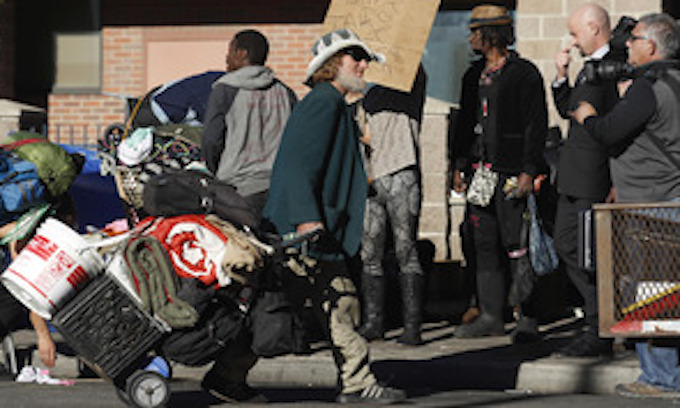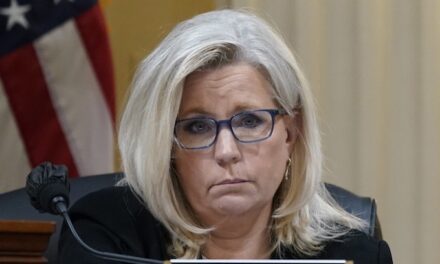Metro Denver’s homeless population jumped by a quarter, adding nearly 1,400 between 2021 and 2022, federal data show.
The data from the U.S. Department of Housing and Urban Development’s 2022 Annual Homeless Assessment Report reflect a single-night snapshot of homelessness, so there could be more — or fewer — homeless people at any given day in America’s major cities.
The survey counted 6,884 homeless people — the overwhelming majority of whom are male — in metro Denver in January this year, compared to 5,530 in 2021.
Compared to two years ago, just before the onslaught of the pandemic, the increase stood at 13% — from 6,104 to this year’s total.
Notably, the number of homeless people in metro Denver’s streets sharply rose in the last few years.
In 2019, the federal survey counted 946 “unsheltered” individuals. In 2020, the number jumped to 1,561, and by 2022, it stood at 2,047.
The data yielded a few places of improvement. The number of homeless children dropped within the last year. So did the number of Hispanics and African-Americans who are homeless. But the number of homeless people who are white spiked, adding nearly a thousand people.
Colorado’s biggest cities — metro Denver, in particular — have struggled to address homelessness, even as state and local governments have poured significant resources into tackling the crisis. A free-market think-thank said local governments and nonprofits are on track to spend nearly $2 billion over a three-year period to tackle homelessness in some counties in the Denver metro area alone.
The homeless crisis has occupied front and center of the debate on the floors of the state Capitol and in halls of city councils.
The city of Aurora, for example, recently decided to overhaul its homelessness reduction system after a divided council approved a proposal that calls for a new campus, incentivizes people’s participation in supportive services and incorporates conditions people must meet to receive transitional housing. City staff have projected building a campus on city-owned land could cost between $50 million and $70 million.
The city of Denver, meanwhile, earmarked $254 million in its 2023 budget toward homelessness. Of that amount, $20 million would go towards what Mayor Michael Hancock called “housing justice” and include a down payment assistance program seeking to increase home ownership among families of color.
© © 2022 Colorado Politics. All Rights Reserved.
—-
This content is published through a licensing agreement with Acquire Media using its NewsEdge technology.



















And yet we have an uncontrolled Southern Border adding to the problem.
And we have had an out of controlled treasonous Democrat Party ruled congress and their corrupt puppet president deliberately doing as much damage as possible to our economy and promoting socialism.
2 Thess 3:10 For even when we were with you, we gave you this rule:
“If a man will not work, he shall not eat.”
But the demonic Democrats are forcing all that do work and pay taxes to support every deadbeat, illegal immigrant and minority.
And of course those who receive these free handouts will vote for their masters and become the socialist government’s servants, slaves and wards of the socialist Democrat Party Dictatorship.
COULD ONE be FUELING the other?
before biden and his minions from hell are through we will all be in the streets.